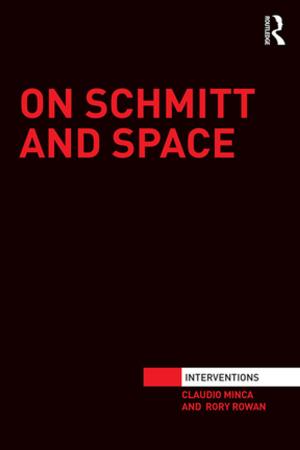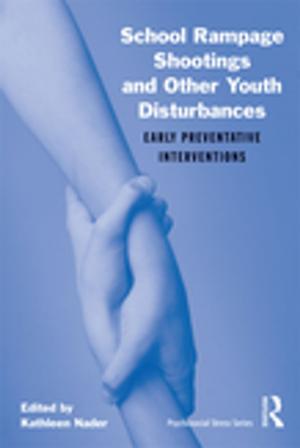The Origins of the US War on Terror
Lebanon, Libya and American Intervention in the Middle East
Nonfiction, Social & Cultural Studies, Political Science| Author: | Mattia Toaldo | ISBN: | 9781136166808 |
| Publisher: | Taylor and Francis | Publication: | December 7, 2012 |
| Imprint: | Routledge | Language: | English |
| Author: | Mattia Toaldo |
| ISBN: | 9781136166808 |
| Publisher: | Taylor and Francis |
| Publication: | December 7, 2012 |
| Imprint: | Routledge |
| Language: | English |
The war on terror did not start after 9/11, rather its origins must be traced back much further to the Reagan administration and the 1980s. Utilizing recently declassified archival resources, Toaldo offers an in-depth analysis of how ideas and threat perceptions were shaped both by traditional US policy in the Middle East during the Cold War and by the cooperation with the Israeli right. The book examines two case studies of American intervention in the region and of its reactions to terrorism: Lebanon between 1982 and 1984 and Libya from 1981 to 1986. The first encounter with Hizbullah and the ‘pre-emptive strike’ against Qadhafi are analyzed in light of the recently released sources.
Tracing foreign policy thinking developed by Reagan officials and Israeli intellectuals and leaders, the work demonstrates the significant impact this thinking had on US foreign policy after 9-11: ideas such as pre-emptive strikes, regime change and state-sponsorship were elaborated in the Reagan years and would later influence Bush’s Global War on Terror. The book will be of great interest to scholars of US Foreign Policy, Middle East studies and American history.
The war on terror did not start after 9/11, rather its origins must be traced back much further to the Reagan administration and the 1980s. Utilizing recently declassified archival resources, Toaldo offers an in-depth analysis of how ideas and threat perceptions were shaped both by traditional US policy in the Middle East during the Cold War and by the cooperation with the Israeli right. The book examines two case studies of American intervention in the region and of its reactions to terrorism: Lebanon between 1982 and 1984 and Libya from 1981 to 1986. The first encounter with Hizbullah and the ‘pre-emptive strike’ against Qadhafi are analyzed in light of the recently released sources.
Tracing foreign policy thinking developed by Reagan officials and Israeli intellectuals and leaders, the work demonstrates the significant impact this thinking had on US foreign policy after 9-11: ideas such as pre-emptive strikes, regime change and state-sponsorship were elaborated in the Reagan years and would later influence Bush’s Global War on Terror. The book will be of great interest to scholars of US Foreign Policy, Middle East studies and American history.















